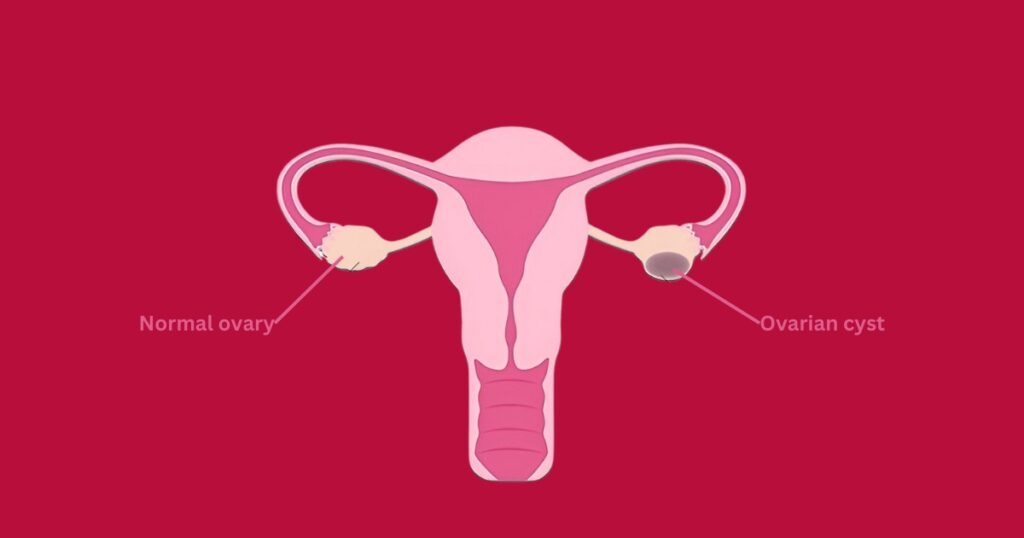Pregnancy is the rhythm of life with the music of excitement. Apprehension often breaks the tune in between especially for women going through various complications of reproductive health. One of the complications is the presence of an ovarian cyst.
What is an ovarian cyst?
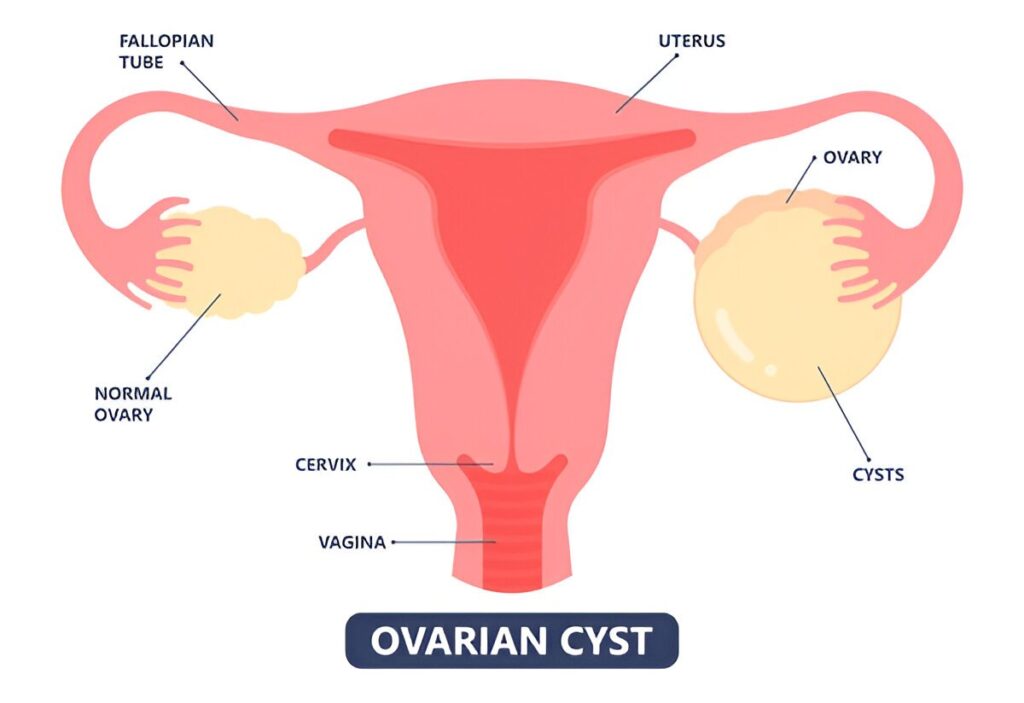
A cyst that forms on the ovary is called an ovarian cyst. These are sacs filled with fluid. Most of the time they are amiable and asymptomatic. However, sometimes they can harm pregnancy and fertility. So, women must understand ovarian cysts and their way of interference. This will help them make an informed decision towards their reproductive health.
This article explores the ill impacts of ovarian cysts and how they barge into the reproduction process.
Type of Ovarian Cysts
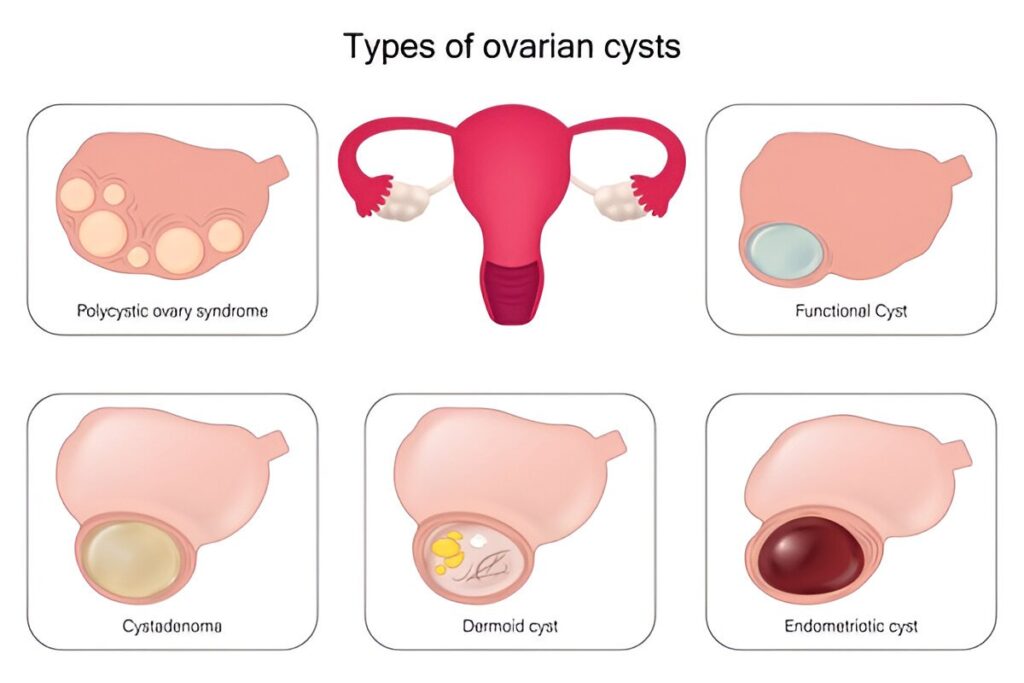
In general, ovarian cysts are fluid-filled sacs that commonly affect women. This unfair behaviour is usually seen during the reproductive years. Most cysts resolve on their own however, it’s crucial to know them thoroughly to prevent reproductive complications.
There are different types of ovarian cysts, some of the common ones are:
- Pathological Cysts: These can form due to conditions like tumours or endometriosis. Treating these cysts requires proper evaluation to prevent potential complications.
- Functional Cysts: These are more frequently seen than Pathological Cysts. They develop during the menstrual cycle and include corpus luteum cysts and follicular cysts. Both of these forms resolve naturally.
Ovarian Cyst Symptoms
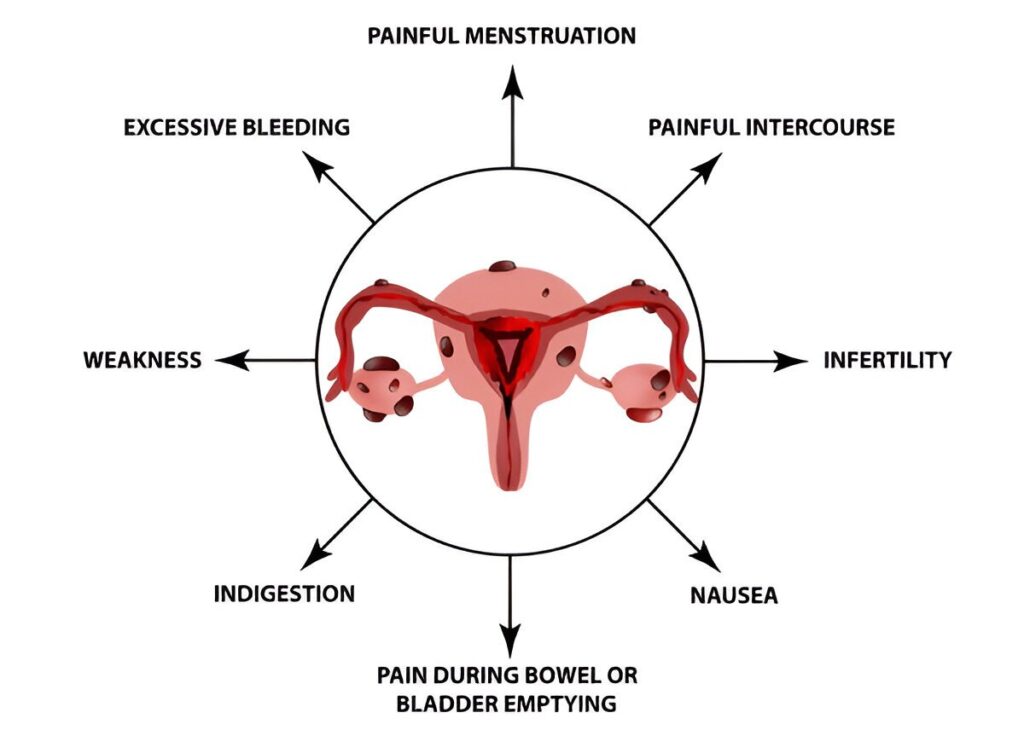
Typically, there are no symptoms of ovarian cysts. However, some women may experience ovarian cyst symptoms like:
- Irregular menstrual cycles
- Mild pain and discomfort in the pelvic area
- Pressure or bloating in the abdomen
Cysts can rupture in severe cases. This can lead to experiencing intense pain and varying complications based on the condition. Immediate medical assistance is a smart consideration during such situations.
Is Ovarian Cyst Dangerous During Pregnancy?
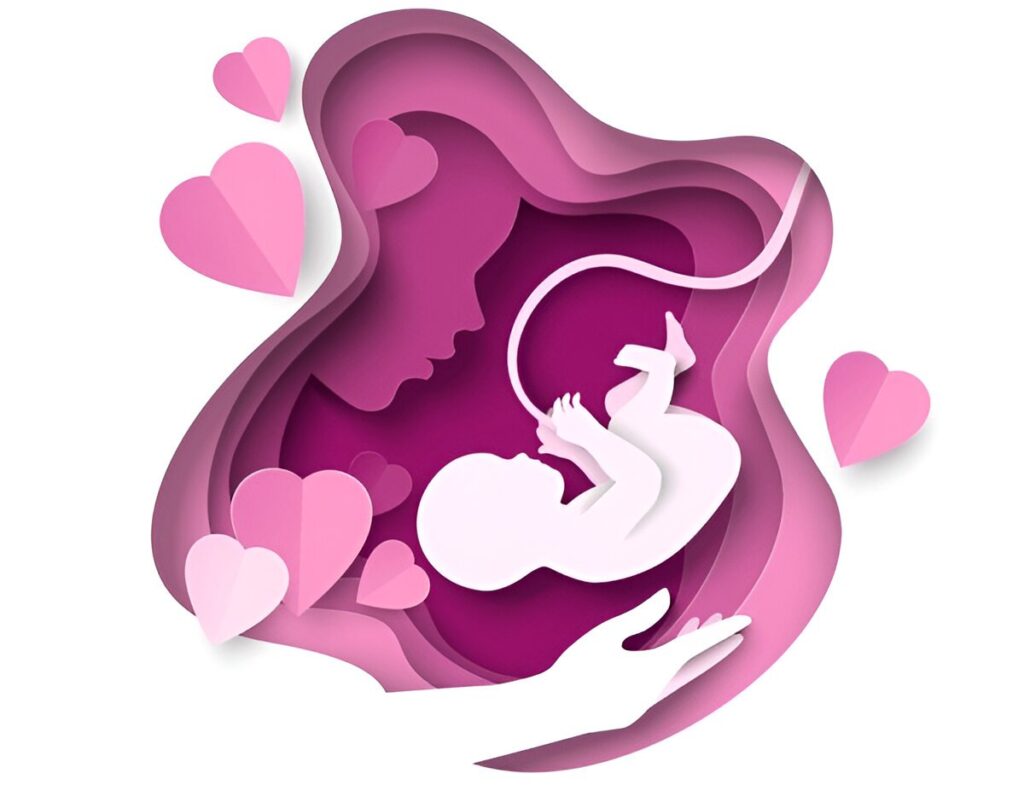
Most cysts generally pose no harm during pregnancy. A lady with ovarian cysts can still conceive and take the pregnancy to a mature level. A female body functions the same way despite having the presence of functional cysts.
So, when is an ovarian cyst dangerous?
- Complications arise when it comes to fertility. For example, cysts related to endometriosis can cause trouble. A woman with the same condition may face multiple challenges to become fertile. The impact on pelvic structures and ovaries can create issues.
- Also, women with Polycystic Ovary Syndrome can have numerous cysts. Too many cysts can disrupt natural ovulation. Conception can become complicated due to PCOS.
Ovarian Cyst Treatment & Management
Healthcare professionals do not generally recommend immediate intervention when a pregnant woman has ovarian cysts. The size and type of cysts present can be assessed through ultrasonography. Periodic tests are often prescribed during these situations. Regular tests ensure that the conditions don’t pose a threat to the pregnancy.
- Ovarian cyst treatment involves a thorough observation and sometimes the issue gets resolved without an intervention.
- Treatment options are explored only if a cyst is symptomatic, large or causing fertility problems. If the woman is already pregnant, treating the cyst may not be a good option.
What Size of Ovarian Cyst is Dangerous?
A cyst that grows over 5 centimetres can be a threat, especially when a woman is pregnant. Any cyst that is more than 5-10 centimetres can cause complications such as ovarian torsion. A larger ovarian cyst causes the ovary to twist and leads to severe pain. Sometimes, blood flow even gets interrupted due to ovarian torsion. Sizeable cysts can rupture and cause internal bleeding. Close monitoring is initially suggested if a cyst exceeds the usual size. Treatment comes in the later stage to prevent major complications.
Navigating Pregnancy with Confidence
Ovarian cysts can be a concern for many pregnant women. In most cases, cysts do not interfere with fertility, however, constant monitoring is the key to safety. Let your healthcare provider examine the medical history to take prompt action against any underlying issue. They can help you find out the reason for ovarian cyst and take medications accordingly. Keeping reproductive health in mind, it is crucial to understand ovarian cysts and their development. If you want to know more about ovarian cyst in Hindi, follow insightful articles, blogs and videos from recognized medical experts. Most of these sources are available online and can be downloaded for perusal.
